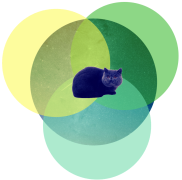Matariki is the Māori name for the cluster of stars also known as the Pleiades. In Aotearoa Matariki rises in mid-winter–late May or early June. It traditionally heralds winter solistice in New Zealand or the Māori new year.
Matariki translates to the ‘eyes of god’ (mata ariki) or ‘little eyes’ (mata riki). According to myth, when Ranginui, the sky father, and Papatūānuku, the earth mother, were separated by their children, the god of the winds, Tāwhirimātea, became so angry that he tore out his eyes and threw them into the heavens.

Matariki: A time for remembering the cycles of life and death
Traditionally, Matariki was time to honour and remember those who had died in the last year. But it was also a happy event. It”s a time for the harvest of crops and seafood and the hunting of birds. With plenty of food in the storehouses, Matariki was a time for singing, dancing and feasting for Māori.
In old times, Matariki was greeted with expressions of grief for those who had died since its last appearance. Some said the stars housed the souls of those departed.
Rangihuna Pire, in his 70s, remembered how as a child he was taken by his grandparents to watch for Matariki in mid-winter at Kaūpokonui, South Taranaki:
The old people might wait up several nights before the stars rose. They would make a small hāngī. When they saw the stars, they would weep and tell Matariki the names of those who had gone since the stars set. Then the oven would be uncovered so the scent of the food would rise and strengthen the stars, for they were weak and cold.
It was also a time to be thankful for the crops and to say a brief karakia for the forthcoming season.
Matariki atua ka eke mai i te rangi e roa,
E whāngainga iho ki te mata o te tau e roa e.
Divine Matariki come forth from the far-off heaven,
Bestow the first fruits of the year upon us.
WINTER STARS IN NEW ZEALAND
The following Maori names are used to identify stars and other celestial objects on modern astronomical charts:
- Autahi Canopus (Alpha Carinae)
- Kokirikiri Large Magellanic Cloud
- Matariki Pleiades star cluster
- Puanga Rigel (Beta Orionis)
- Rehua Antares (Alpha Scorpii)
- Takurua Sirius (Alpha Canis Majoris)
- Taumata-kuku Aldebaran (Alpha Tauri)
- Tautoru The three stars of Orion’s Belt
- Te Punga Southern Cross
- Te Taura The Pointers (Alpha and Beta Centauri)
- Tikatakata Small Magellanic Cloud


I didn’t know the importance of the Pleiades in Maori culture, but it’s fascinating how these particular stars feature in so many other cultures around the world. In many parts of Africa they are of course ‘the digging stars’ heralding rain and the start of the planting season. Likewise among the Inca, if I remember rightly. Which has now made me remember the Maasai take on the stars of Orion’s belt: three old men being pursued by lonely widows! Happy Friday, Content Catnip
LikeLiked by 1 person
I love all of this imagery Tish, such a rich global history about the meaning of the stars and so full of magic, wonder and ancient storytelling. You’ve now got me on an internet trail finding out about Masai legends and Inca legends. It seems that all of the great cultures have been fascinated by the stars and nothing has changed much with the addition of science/astronomy. What are your thoughts on living on an Exoplanet that is earth-like?
LikeLiked by 1 person
Exoplanet! That is a very BIG question for a Monday morning. I shall have to go away and think about it. Have a good week, and happy star trekking.
LikeLiked by 1 person
Have a great week too Tish, big hugs xx
LikeLiked by 1 person
It’s amazing to see the story of Matariki feature in such a modern forum. We have so many stories that deserve to be shared and preserved. Nga mihi nui ki a koe mo enei o o tuhinga.
LikeLiked by 1 person
Kia ora e hoa, lovely to hear from you.I am so glad that you found this inspirational and I hope to write more about Maori culture and history it’s a part of my own heritage. nga mihi nui
LikeLike